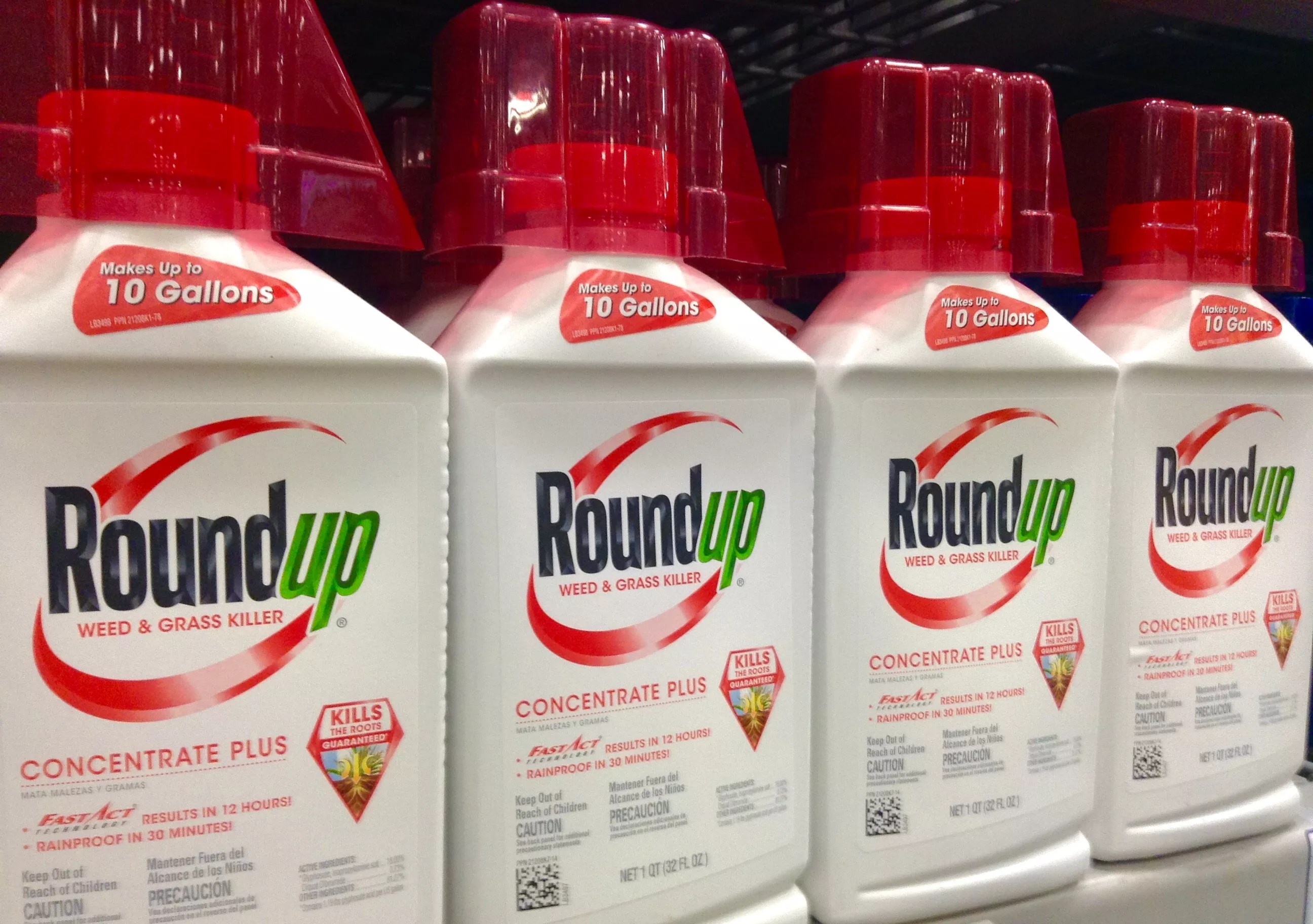
Roundup, Monsanto, 2/2015, by Mike Mozart of TheToyChannel and JeepersMedia on YouTube

Audio By Carbonatix
Fort Lauderdale landscaper Phillip Dressel used Roundup products professionally and personally for more than 30 years. Following the instructions on the package, he always wore gloves and eye protection, but, according to court records, he unknowingly exposed himself to a carcinogenic product that cost him his left leg.
Dressel joined thousands of landscapers nationwide when he filed a personal injury lawsuit against Roundup’s maker, Monsanto, and its parent company, Bayer, accusing both companies of failing to warn potential customers of the dangers the herbicide poses to human health, according to the lawsuit.
Dressel began using Roundup professionally in 1990 and continued well into 2022, but it wasn’t until early 2023 that he noticed skin lesions forming on his arms, according to the lawsuit.
A skin biopsy identified the cause: mycosis fungoides, a rare type of blood cancer that causes changes in your skin, according to the Cleveland Clinic.
Medical treatment couldn’t stop Dressel’s lesions from spreading up his arms and legs, according to the lawsuit.
“Before long, plaintiff’s face was almost unrecognizable because of the spread of the lesions,” according to the lawsuit. “By May 2024, plaintiff’s lesions had overpowered his treatment regime. A cluster of lesions overtook plaintiff’s left leg.”
The lesions on his leg turned septic and left surgeons with no choice but to amputate his left leg and part of his hip to save his life, according to the lawsuit.
In the lawsuit, Dressel accuses Monsanto and Bayer of failing to warn buyers like him about Roundup’s carcinogenic nature.
A Bayer spokesman, however, in a statement to the New Times, disputed the assertion that Roundup causes cancer, saying that significant research supports a different conclusion.
“While we have great sympathy for the plaintiff in this case, the extensive body of scientific research on glyphosate-based herbicides over more than four decades, as well as the assessments of the EPA and other leading health regulators worldwide, support the conclusion that Roundup is not responsible for their illnesses,” a Bayer spokesman wrote in a statement to New Times.
“The Company has secured favorable outcomes in 17 of the last 25 trials.”
The Federal Insecticide, Fungicide, and Rodenticide Act (FIFRA) requires that all pesticides be registered with the Environmental Protection Agency (EPA) before they may be sold. The EPA requires companies to register and test their products for any potential adverse effects on non-target organisms.
“Registration by the EPA, however, is not an assurance or finding of safety,” according to the lawsuit. “The determination the EPA must make in registering or re-registering a product is not that the product is ‘safe,’ but rather that use of the product in accordance with its label directions will not generally cause unreasonable adverse effects on the environment.”
In April, Bayer filed a petition for a writ of certiorari with the U.S. Supreme Court in the Durnell v. Monsanto case, where a jury awarded a Missouri man, John Durnell, $1.25 million in damages for a near-identical claim, according to Justice Pesticides, an organization that tracks and reports on legal cases involving the use of pesticides.
Monsanto’s petition argues that federal law preempts state-based failure-to-warn theory, a law that holds manufacturers liable for failing to warn consumers about potential dangers related to the use of their products. Monsanto says the decision made at the state level should be reviewed and settled by the U.S. Supreme Court, the Bayer spokesman told New Times in a statement.
The company also filed two hold petitions with the U.S. Supreme Court in similar cases in Oregon and another in Florida, arguing that a federal court should decide whether the company is responsible for landscapers’ injuries, according to Bayer.
“Only the U.S. Supreme Court can provide definitive guidance to state and federal courts that have reached different conclusions on this central issue,” the spokesman told New Times in a statement. “If granted, the Supreme Court would decide the case during its 2025-2026 session.”
As thousands of cases pile up in state and federal courts, the stakes are high for Roundup, according to an April statement from the company’s base in Leverkusen, Germany.
“The litigation industry is spending hundreds of millions of dollars, based on a single outlier report that is now a decade old, in an effort to punish the company for marketing a product without a cancer warning, even though the EPA and every other health regulator worldwide that has assessed the safety of glyphosate, the active ingredient in Roundup, has found that it does not cause cancer,” the statement reads.
The ongoing litigation also threatens Monsanto’s ability to continue supplying glyphosate-based products to farmers and other professional users, according to the company.
“The security and affordability of the food supply depend on having innovative agricultural tools like Roundupâ„¢ available to farmers with uniform and science-based labels that everyone in the stream of commerce can rely on, as dictated by federal law,” according to a statement from the company.
In the Durnell case, the jury’s verdict rests solely on the claim that Missouri law requires the company to warn that Roundup is carcinogenic, the precise warning that the EPA rejects, according to the company.
“This claim is plainly in conflict with the product label EPA approved under federal law, based on the agency’s rigorous scientific assessment, and cannot be changed without agency approval,” according to the company.